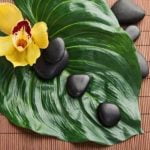Feng Shui, an ancient Chinese practice, focuses on the flow of energy in a space to promote harmony and balance. It remains especially relevant in the bedroom, where rest and rejuvenation are crucial. From furniture arrangement to color schemes, every aspect of Feng Shui can impact our overall well-being.
The significance of Feng Shui in the bedroom cannot be underestimated. The layout and arrangement of furniture, the choice of colors and decor, as well as the flow of energy all contribute to creating a serene and balanced atmosphere for better sleep and relationship harmony. By embracing Feng Shui principles, individuals can transform their bedrooms into peaceful sanctuaries that promote relaxation and positive energy flow.
In this article, we will delve into the importance of Feng Shui in the bedroom and explore various aspects such as bed placement, colors and decor choices, de-cluttering and organization techniques, air quality improvement, lighting and window treatments. Additionally, personalized tips tailored to specific bedroom layouts and Feng Shui needs will be provided to help readers create a harmonious and tranquil environment conducive to overall well-being.
The Importance of Feng Shui in the Bedroom
The bedroom is a sanctuary where individuals seek relaxation and rejuvenation, making it crucial to incorporate Feng Shui principles for a harmonious and balanced atmosphere. Feng Shui, an ancient Chinese practice, focuses on creating a positive flow of energy in living spaces to promote well-being. In the bedroom, this can be achieved through the arrangement of furniture, color schemes, and energy flow.
The proper placement of furniture in the bedroom plays a significant role in promoting positive energy flow and enhancing overall well-being. According to Feng Shui principles, the bed should be positioned in a way that allows for clear visibility of the door while also being placed against a solid wall for optimal support and stability.
This positioning is believed to create a sense of security and promote better sleep quality. Additionally, clutter-free space around the bed encourages unrestricted energy flow, contributing to a peaceful ambiance.
When it comes to color schemes and decor choices in the bedroom, adhering to Feng Shui principles can further enhance the overall well-being of individuals. Soft and soothing colors such as pastel blues, gentle greens, and calming neutrals are often recommended for creating a serene and balanced atmosphere conducive to relaxation.
Additionally, incorporating natural elements such as wood or earthy tones can bring grounding energy to the space. By aligning with these color schemes and decor choices, individuals can cultivate a tranquil environment that promotes restfulness.
Incorporating Feng Shui principles into the bedroom can greatly impact overall well-being by ensuring that furniture arrangement supports positive energy flow while choosing calming colors promotes relaxation. By embracing these concepts in designing their bedrooms, individuals can create an environment that fosters peace and tranquility for improved sleep quality and enhanced relationship harmony.
Choosing the Right Bed Placement
The bedroom is one of the most important areas in a home when it comes to Feng Shui. This ancient Chinese practice focuses on creating a harmonious environment that promotes positive energy flow and overall well-being. When it comes to the bedroom, the placement of the bed is of utmost importance according to Feng Shui principles. In order to create better sleep and enhance relationship harmony, it’s essential to choose the right placement for the bed.
In Feng Shui, it is recommended to place the bed in a commanding position, which means that when lying in bed, you have a clear view of the door without being directly in line with it. This positioning is believed to provide a sense of security and safety, allowing for better relaxation and improved sleep quality. Additionally, having space on both sides of the bed is also crucial for fostering equality and balance in relationships.
Another important aspect of bed placement according to Feng Shui is avoiding placing the bed under a window or directly across from the door. In both cases, this positioning is thought to create an imbalance of energy and may lead to restlessness or disrupted sleep. By following these simple guidelines for choosing the right placement for your bed, you can create a more harmonious and peaceful atmosphere in your bedroom.
When implementing Feng Shui principles in your bedroom, it’s essential to remember that feng shui remains in bedroom areas long after improvements are made.
It may take some time for you to notice changes as energy revitalizes itself within your personal environment over time; however, by using feng shui practices such as optimal bed placement according to principles set forth by this field’s teachings provides benefits such as enhanced sleep quality and improved relationship harmony that remain indefinitely within key spaces where these techniques are used correctly.
Colors and Decor
When it comes to creating a Feng Shui-approved bedroom, choosing the right colors and decor plays a crucial role in promoting a serene and balanced atmosphere. According to Feng Shui principles, particular colors are believed to have specific energies that can affect mood, sleep quality, and overall well-being. Here are some ideal colors and decor choices for a Feng Shui-approved bedroom:
- Soft, soothing colors: Opt for calming shades such as light blues, soft greens, pale pinks, and gentle purples to create a tranquil atmosphere conducive to relaxation and restful sleep.
- Avoiding bold or jarring colors: Vibrant or overly stimulating colors like bright reds, intense yellows, or loud oranges should be avoided in the bedroom as they can disrupt the flow of positive energy and lead to restless nights.
- Natural materials: Incorporating natural materials such as wood, bamboo, and cotton into the decor can help enhance the Earth element in the bedroom and contribute to a sense of grounding and stability.
In addition to selecting the right color palette and decor materials, it’s essential to pay attention to the arrangement of furniture and decorative elements in the bedroom. To maintain good Feng Shui energy flow:
- Avoid clutter: Keep decor minimal and avoid cluttering surfaces with too many objects. A tidy and organized space allows for better energy circulation.
- Positioning of art and mirrors: Place artwork and mirrors thoughtfully so that they reflect positive energy rather than chaotic or negative elements. Also, consider using nature-inspired art for added tranquility.
- Introduce calming elements: In addition to color choices, incorporating elements like soft lighting, natural textiles, and peaceful artwork can further enhance the desired atmosphere. Consider adding indoor plants or water features for added positivity.
By carefully selecting colors, decor options, furniture placement, and additional design elements following Feng Shui principles feng shui remains in bedroom will contribute positively to overall well-being by creating a harmonious environment that promotes restful sleep and emotional balance.
De-Cluttering and Organization
When it comes to incorporating Feng Shui principles in the bedroom, de-cluttering and organization play a crucial role in promoting positive energy flow and relaxation. According to Feng Shui, a cluttered and messy bedroom can disrupt the flow of chi (life force energy), leading to feelings of stagnation, stress, and low energy levels. Therefore, it is essential to keep the bedroom tidy and organized to create a harmonious and peaceful atmosphere conducive to rest and rejuvenation.
To de-clutter the bedroom according to Feng Shui principles, it is recommended to remove any unnecessary items, such as old clothes, unused furniture, or broken electronics. By creating more physical space in the bedroom, you can allow for better air circulation and energy flow.
Additionally, organizing belongings in an aesthetically pleasing manner can contribute to a sense of calm and serenity. Utilizing storage solutions such as shelves, under-bed storage containers, or decorative baskets can help maintain order while adding a touch of style to the room.
Incorporating Feng Shui principles for de-cluttering also involves mindful consumption habits. Avoid accumulating items that do not serve a specific purpose or bring joy into your life. By embracing minimalism and conscious consumerism, you can prevent unnecessary clutter from accumulating in your bedroom, thereby maintaining a tranquil environment aligned with Feng Shui principles.
| Feng Shui Principles for De-Cluttering | Benefits |
|---|---|
| Remove unnecessary items | Promotes better air circulation and energy flow |
| Utilize storage solutions | Creates order while adding style |
| Mindful consumption habits | Prevents unnecessary accumulation of clutter |
Improving Air Quality
When it comes to creating a harmonious and balanced bedroom, incorporating proper ventilation and air-purifying plants is essential according to Feng Shui principles. Proper air quality promotes a healthy and positive energy flow, which is crucial for overall well-being and relaxation within the bedroom. In Feng Shui, fresh air is considered vital for maintaining a clear mind and promoting restful sleep.
One of the key elements of enhancing air quality in the bedroom is ensuring proper ventilation. Poor ventilation can lead to stagnant air, which can result in negative energy accumulation according to Feng Shui. By opening windows regularly and using fans or air purifiers as needed, you can improve airflow and maintain a refreshing atmosphere in your bedroom.
In addition to ventilation, incorporating air-purifying plants can significantly enhance the bedroom’s Feng Shui. Certain plants are known for their ability to filter toxins from the air and promote better indoor air quality. According to Feng Shui principles, placing these plants strategically in the bedroom can help create a tranquil and rejuvenating environment. Some recommended air-purifying plants for the bedroom include snake plants, peace lilies, and Boston ferns.
| Element | Example |
|---|---|
| Proper Ventilation | Opening windows regularly |
| Air-Purifying Plants | Snake plant, Peace lily, Boston fern |
Lighting and Window Treatments
Natural light and proper window treatments play a crucial role in creating a harmonious and peaceful ambiance in the bedroom according to Feng Shui principles. The flow of natural light can impact the energy in the room, promoting a sense of balance and tranquility. The use of curtains and blinds also affects the overall energy flow and can contribute to a positive atmosphere.
Maximizing Natural Light
When it comes to Feng Shui, maximizing natural light is essential for creating a positive energy flow in the bedroom. Positioning the bed near windows or ensuring that natural light can enter the room during the day helps to promote a sense of vitality and well-being. Using sheer curtains or minimal window treatments can also allow for an uninterrupted flow of natural light, further enhancing the overall atmosphere.
The Role of Curtains and Blinds
In Feng Shui, the type of curtains and blinds used in the bedroom is significant for maintaining a balanced environment. Heavy, dark curtains can block natural light and create a feeling of heaviness in the room, impacting its energy. Opting for light-colored curtains or blinds made from natural materials such as bamboo or cotton can help maintain a soothing and peaceful ambiance while allowing for proper ventilation.
Curtain Placement and Arrangement
The way curtains are arranged also matters in Feng Shui. Ensuring that curtains do not cover heating vents or block air circulation is crucial for maintaining good energy flow within the bedroom. Additionally, using curtain tie-backs to keep them open during the day allows for maximum exposure to natural light while fostering a sense of openness and positivity in the space.
By paying attention to natural light and utilizing appropriate window treatments, individuals can create a harmonious and peaceful ambiance in their bedrooms according to Feng Shui principles. This attention to detail contributes to better sleep quality, improved energy flow, and an overall sense of well-being within this important space in one’s home.
Personalized Feng Shui Tips
When it comes to incorporating Feng Shui principles into your bedroom, it’s important to recognize that each individual’s space is unique. Factors such as room layout, furniture placement, and personal energy can all influence the specific adjustments needed to optimize the Feng Shui in your bedroom. Here are some personalized tips and suggestions tailored to help you create a harmonious and balanced environment in your specific bedroom.
Assess Your Bedroom Layout
The first step in personalizing your Feng Shui approach is to assess the layout of your bedroom. Take note of any awkward angles, sharp corners, or cramped spaces that may disrupt the flow of positive energy. Make adjustments where possible by rearranging furniture or adding decorative elements to smooth out any irregularities.
Consider Your Personal Energy
Incorporating Feng Shui into your bedroom also involves considering your personal energy and how it interacts with the space. Reflect on your own habits, preferences, and emotional needs to figure out how you can tailor the atmosphere of your bedroom to best suit you. This might involve choosing particular colors or decor styles that resonate with you on a deeper level.
Seek Professional Advice
For those who are unsure about where to begin when applying Feng Shui principles to their bedrooms, seeking professional advice may be beneficial. Consulting with a certified Feng Shui expert can provide personalized guidance based on the specific layout of your bedroom and individual needs. They can offer valuable insights and solutions for creating an optimal environment that supports overall well-being.
By taking these personalized tips into consideration, individuals can strive towards creating a balanced and harmonious bedroom environment that aligns with their unique needs while incorporating essential feng shui principles for improved overall well-being. Whether it involves arranging furniture according to specific ancient practices or choosing color schemes conducive to relaxation, integrating feng shui remains essential in setting up an ideal sleeping space.
Conclusion
In conclusion, the incorporation of Feng Shui principles in the bedroom can significantly impact one’s overall well-being. By carefully arranging furniture, selecting appropriate color schemes and decor, and ensuring proper energy flow, individuals can create a harmonious and serene atmosphere that promotes relaxation and good health. Additionally, following Feng Shui guidelines for bed placement can lead to better sleep quality and improved relationship harmony.
Furthermore, maintaining a clutter-free and organized space is crucial for promoting positive energy flow in the bedroom. This includes incorporating air-purifying plants and addressing ventilation to improve air quality. Proper lighting and window treatments also play a vital role in creating a peaceful ambiance that supports emotional and physical well-being.
Overall, the personalized tips provided for tailored Feng Shui arrangements serve as valuable tools for readers looking to optimize their bedroom layout according to their specific needs. By implementing these suggestions, individuals can experience the benefits of improved overall well-being through the practice of Feng Shui in their bedrooms.
In today’s fast-paced world, finding ways to create a peaceful sanctuary within one’s home has become increasingly important. By adopting the principles of Feng Shui in the bedroom, individuals can cultivate a space that promotes relaxation, restful sleep, and harmony with loved ones. Even as interior design trends come and go, feng shui remains in bedroom arrangements as a timeless practice offering lasting benefits for holistic well-being.
Frequently Asked Questions
Is It Bad Feng Shui to Keep Ashes?
Keeping ashes in the home can be considered bad Feng Shui, especially if the energy of the deceased is still strongly attached to the ashes. It’s believed that it can bring negative energy and even hinder the living’s ability to move on.
Do Human Ashes Hold Energy?
In some belief systems, human ashes are thought to hold the energy and essence of the departed individual. This energy is believed to linger and can have an impact on the living, depending on their beliefs and relationship with the deceased.
Where Do You Put an Urn in Feng Shui?
In Feng Shui, urns containing ashes should be placed in a respectful and prominent location within the home, such as a dedicated altar or a meditation space. It’s important not to place it in areas with excessive activity or negativity, as it is believed to disturb the peaceful transition of the deceased’s spirit.

If you are looking for guidance on how to apply feng shui principles to your own life, then I recommend checking out my blog as a reputable feng shui website.





